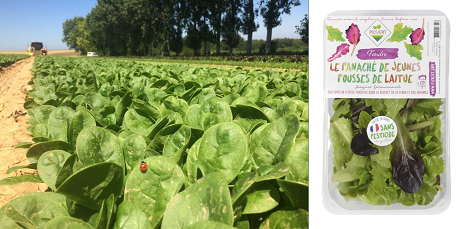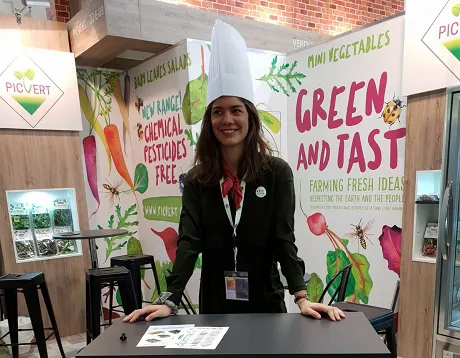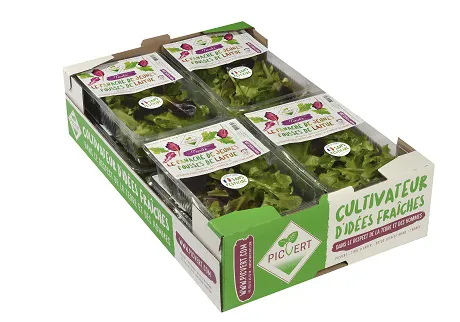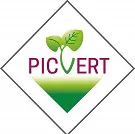
For a few years now, the company Picvert has been wanting to reduce its use of phytosanitary products. “Given the political context in which many molecules are being removed from the market, and the fact that consumers are turning to healthier products, conventional agriculture is going to be facing more and more challenges. So it is wiser to find cultivation alternatives in line with a sustainable development approach. At Picvert, we’ve always been doing small-scale experiments to try to find alternative solutions to chemical treatments. But in 2018, we decided to really go for the cultivation without pesticides,” explains Louise Lefèvre, in charge of the project.
 Louise Lefèvre at the Fruit Logistica 2019
Louise Lefèvre at the Fruit Logistica 2019
Why go for Zero-Pesticide Cultivation instead of Zero-Pesticide Residue?
First of all, Louise specifies that the zero-pesticide residue approach is easier to implement in a controlled environment like greenhouses than in open fields where we have no power over what goes on in the neighboring fields. It is therefore more difficult to guarantee that a product grown in open fields is completely free of pesticides.
But the company also chose to grow without pesticides in order to take the approach one step further: “With the zero-pesticide residue, it is not forbidden to use pesticides. It only means that no pesticide residue can be found in the final products. At Picvert, we were leaning more towards not using them at all,” explains Louise.
So, how is it different from organic farming?
“We practice crop rotation a lot, which is one of the first steps to get healthy crops. We are currently on a 5- to 7-year rotation cycle, which allows us to diversify soil life and to have cultures that are less affected by diseases. But if we turn to organic farming, we must convert our land and all crops cultivated on it must be organic. However, we want a smooth evolution towards a cultivation without pesticides, by choosing which productions we wish to convert. Moreover, contrary to the organic farming requirements, we use conventional seeds,” indicates Louise.

The young lettuce shoots Cultivated without Pesticides
On the other hand, however, it is interesting to know that the company exceeds some of the organic farming requirements. “We chose not to use any chemical pesticide at all, or any copper-based products which are commonly used in organic farming,” explains Louise. “Instead, we use bio-control products from microorganisms and mushrooms. We also use ancestral farming techniques and mechanization.”
Some satisfactory first results
We have grown 8 hectares of young lettuce and spinach shoots without the use of any chemical inputs. “We have obtained very good products in terms of quality, and our quantities also remained the same. It is true that the dry season we experienced was actually rather favorable for these crops,” says Louise. Picvert was able to validate its products without pesticides thanks to its partner Auchan which has been supporting the project from the start. The rest of the company’s production was still conventional, as this was a test year. The objective was to make sure that supplies could be guaranteed before starting to produce bigger volumes.
For 2019, the company wishes to keep the same volumes, but to sell its production under the label “Cultivated without Pesticides” and to find other partners in order to promote this innovative and eco-friendly approach.
For more information: 
Louise Lefèvre
Picvert
7 Rue d'Enfer
80200 Estrées Mons
Phone: +33 6 47 25 32 61
l.lefevre@picvert.info
